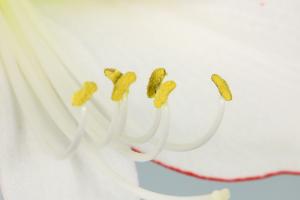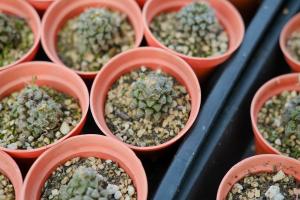What Would Happen to a Plant Cell in Pure Water
Plant cells are enclosed in a cell wall, which helps them maintain their shape and protect them from external environments. They also have a central vacuole filled with fluid and organelles, including the nucleus, mitochondria, and chloroplasts. The fluid in the vacuole is called the cell sap, which includes water, minerals, and other nutrients required for the plant to grow and survive. When a plant cell is placed in pure water, it changes its state, leading to several outcomes that are important to understand.
The Effects of Pure Water on a Plant Cell Membrane
The cell membrane is the most delicate structure in the plant cell, and it is responsible for controlling the movement of molecules in and out of the cell. The cell membrane is semi-permeable, meaning it allows some molecules to pass through it while blocking others. When a plant cell is placed in pure water, water molecules start to pass through the cell membrane into the cell. As this happens, the cell starts to swell, and the cell wall pushes back until the influx of water molecules becomes balanced by the outflow of water from the cell. This process is called osmosis, and it causes a plant cell to become turgid when placed in a hypotonic solution like pure water.
The Effect of Pure Water on a Plant Cell Vacuole
The central vacuole of a plant cell is an essential organelle that stores and regulates the content of the cell sap. When a plant cell is placed in pure water, more water molecules enter the vacuole, causing it to expand. As the vacuole expands, it exerts pressure on the cell wall, making the cell turgid. Turgor pressure is crucial for the plant's survival, as it provides structural support to the plant's tissues and maintains the shape of the plant. In the absence of adequate turgor pressure, the plant will wilt and may die.
The Effect of Pure Water on Plant Cell Function
The plant cell's function relies heavily on the concentration of solutes in the cell sap. When a plant cell is placed in pure water, the concentration of solutes outside the cell is lower than that inside the cell. As a result, the plant cell will absorb water from the environment in an attempt to equalize the concentration of solutes inside and outside the cell. While this may seem like a positive outcome for the plant cell, too much water in the cell may cause damage or rupture of the cell membrane. It can also affect the concentration of nutrients required for the plant's growth, leading to nutrient deficiencies or toxicity.
The Effect of Pure Water on Plant Cell Growth
Water is one of the primary nutrients required for a plant's growth, and its availability is crucial for proper plant development. When a plant cell is placed in pure water, it experiences a rapid influx of water molecules, leading to an increase in turgor pressure and cell expansion. This process is essential for plant growth, as it allows the cells to elongate and divide, enabling the plant to increase in size over time. However, too much water may lead to the cells bursting and can reduce the plant's growth in the long run.
Conclusion
Overall, when a plant cell is placed in pure water, it may experience several changes that can affect its function and survival. While water is crucial for a plant's growth, too much water can cause damage to the cell membrane, affect nutrient availability, and reduce the plant's overall growth. It is essential to maintain the optimal level of water availability for the plant to ensure healthy growth and survival.

 how many times do yo...
how many times do yo... how many planted tre...
how many planted tre... how many pine trees ...
how many pine trees ... how many pecan trees...
how many pecan trees... how many plants comp...
how many plants comp... how many plants can ...
how many plants can ... how many plants and ...
how many plants and ... how many pepper plan...
how many pepper plan...































